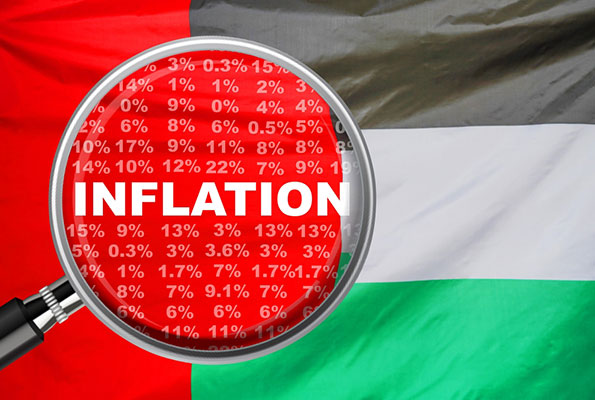Businesses in the UAE are concerned about the rising cost of living, persistently high inflation, and significant commodity price shocks, amid the global economic slowdown.
A panel of CEOs named these problems as the top three immediate and severe dangers to the prospects of UAE’s business continuity and GDP growth, according to the most recent study released by the World Economic Forum (WEF) in collaboration with Marsh McLennan.
Interviews of close to 14000 business executives, global risk experts and policymakers from 121 economies served as the basis for this report.
The study comes at a time when the kingdom has placed an ambitious “Saudi Vision 2030”, under which it will reduce its dependence on oil and will diversify its economy by investing more in public service sectors such as health, education, infrastructure, recreation, and tourism.
Geopolitical competition for resources, conflicts between countries and the failure of cybersecurity measures were also mentioned by survey participants as significant threats to UAE for the next two years.
According to the WEF research, UAE firms are facing “very real risks” due to rising wages, spiralling supply chain costs, and a decline in consumer purchasing power.
Businesses worry about the effects of persistently high inflation, a decline in public sector investment, shortages of public goods, and a lack of human capital.
According to Brad Simpson, Marsh McLennan’s Risk Management Leader for MENA, “For the majority of UAE executives interviewed, the ‘new normal’ that followed the COVID-19 pandemic brings a lingering fear of economic collapse as a result of a convergence of inflationary, debt, and supply chain risks.”
“The Global Risks Report 2023 also clearly shows that the pandemic has deeply impacted short-term risk concerns related to asset bubbles and resource-related geopolitical instability. These factors – alongside cybersecurity fears and climate action failure, paint a picture of unease and uncertainty across the national economy,” he stated further.
The analysis further demonstrated that COVID has significantly impacted short-term risk worries about asset bubbles and resource-related geopolitical instability. These elements, combined with cybersecurity concerns and the failure of climate change initiatives, portray a picture of discomfort and uncertainty throughout the national economy.
According to another study, the non-oil private sector development in the UAE declined for a second straight month in December 2022 as worries about the world economy dampened investor confidence.
The S&P Global UAE Purchasing Managers’ Index (PMI), which is seasonally adjusted, fell from 54.4 in November to 54.2 in December. The “weakness in the global economy,” according to S&P, had caused “the first decline in new export business since August 2021.”
The WEF report advised UAE businesses to take mitigating strategies like maintaining excellent knowledge of the geopolitical tensions’ ability to affect economics, market advantages, and cost growth, integrating ESG and climate guidelines, and preparing for cyberattacks to reduce reputational, operational, and legal risks, bringing down worker risks in light of pressures from inflation on healthcare and essentials and making investments in comprehensive resilience frameworks to prepare for shocks and foresee future crises.
The report has noted that the cost-of-living crisis will be a severe global risk over the next 24 months.
“Cost-of-living crisis was broadly perceived by Global Risks Perception Survey respondents to be a short-term risk, at peak severity within the next few years and easing off thereafter. But the persistence of the global cost of living crisis could result in a growing portion of the most vulnerable parts of society being priced out of access to basic needs, fueling unrest and political instability,” stated the report.
The WEF report indicated that projections from the International Monetary Fund show a decline in global inflation from 2.2% in 2022 to 6.5% in 2023 and 4.1% in 2024.
“The complexity of inflationary dynamics is creating a challenging policy environment for both the public sector and central banks, given the mix of demand and supply-side drivers, including a prolonged war in Ukraine and associated energy-supply crunch, potential for escalating sanctions, and continued bottlenecks from a lingering pandemic or new sources of supply-side controls,” added the report.



